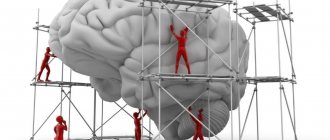Hello, dear readers of the KtoNaNovenkogo.ru blog. We live in a society among other people who differ from each other in their worldview and perception of reality.
In order to live peacefully, humanity has come up with certain rules and laws governing the interaction between individuals.
Ethics is the study of the relationship between man and society - it is a science that studies the values and moral principles underlying human behavior.
What does ethics study?
Since ancient times, ethics as a science has been one of the areas of philosophy that studies the moral and moral values of various social groups. This connection with philosophical science is explained by the fact that understanding the fundamental aspects of ethics requires knowledge of the foundations of philosophy.
Ethics
What is ethics? The concept in question is often called a field of knowledge that includes the study of norms that are so important for the development of society - behavior, rules, traditions, assessment of a person’s goals and actions in a given situation. The main milestones of this science are applied in the study of social, political, and family issues.
Ethics as a branch of philosophical knowledge
Being a branch of philosophical knowledge, ethics is divided into two sections:
- practical;
- theoretical.
The first is a code of rules and norms that a person must follow in order to live correctly in society. The second studies philosophical and religious issues and combines scientific information. Thanks to reasoning and conclusions that are based on the principle of logic, ethics has become a scientific discipline. But despite this, ethics can also be classified as philosophy on the basis of the problems that it considers.
In addition to ethics, philosophical disciplines include:
- epistemology;
- ontology;
- aesthetics.
The listed sectors cover various topics depending on the historical, cultural and other features of the issue being studied. Issues that fall under the purview of ethics relate to the ontology of the theory of knowledge. With the help of ontological and epistemological dogmas, ethics shows that moral values exist in reality and that every person can study them and fit them into their picture of the world.
A branch of philosophy, ethics is largely a theoretical discipline that integrates morality with moral attitudes and the highest aspirations of each person. It represents the normative and practical parts of philosophical knowledge. Producing not only information and knowledge that can be studied, but also spiritual values manifested in real life, it becomes the basis of human activity and sets the vector for it, indicating the virtues that should be strived for throughout life.
The peculiarity of ethics is that the object of its study is not what is happening, what surrounds us in reality, but what should happen in accordance with moral and spiritual values. Therefore, it can be classified as a philosophical discipline that studies not only the values of human life, but also how people’s actions and actions correspond to moral standards.
How is ethics different from etiquette?
We all remember from childhood that we were taught to follow the rules of etiquette, this applied to behavior not only in public places, but also at home. Etiquette is a group of norms or rules of conduct in public places. Here are some of them:
- give up seats on public transport to older people;
- hold doors;
- behave civilly in public places, do not make noise;
- Follow the rules of etiquette at the dinner table.
Modern ethics, continuing the traditions of ancient philosophers and thinkers, is engaged in the study of the deeper moral problems of humanity. Therefore, the consonant concepts of ethics and etiquette have different definitions, but they are definitely important and in some sense similar in meaning for society. These may include:
- compliance with traditions and norms of behavior;
- assessment of criteria for evil and good;
- the possibility of freedom of speech and choice;
- search for goals and meaning in a person’s life, his well-being.
See also: What is ERUDITY, in simple words
Ethical values
This discipline has two types of values through which it studies its subject:
- Positive ones are the ideals that underlie gracious behavior. This includes goodness, conscience, honor, a sense of shame, justice, etc. Essentially, these concepts are absolutes, that is, it is impossible to achieve them 100%, but the desire for this is encouraged by religion and society.
- Negative values represent the other side of the coin - the opposite of positive ones. These include evil, cynicism, selfishness, envy and others. These vices are condemned by the public: a person who is guided through life by them is condemned by people.
These values, both good and bad, are the voluntary choice of every person and form the basis of his actions. Which of them he will use on his way and which ones he will throw aside depends on the level of his morality and upbringing instilled by significant adults.
And if a person’s worldview differs from public moral principles, then it will be difficult for her to get along among people (this is a direct path to sociopaths).
Thus, ethics is a science that regulates human relationships , teaches “how to and how not to” deal with others.
Ethics and psychology
As a rule, personal ethics is an integral part in the study of various branches of a science such as psychology. This is due to the fact that this science studies the psychological aspects of personality, its existence, interaction with the surrounding society, processes that occur in a person’s mind and often serve as the reason for his actions. Ethics, in addition, considers the behavior and worldview of a person, but from the point of view of the moral and ethical foundations and traditions that have developed in society.
Asking the question what ethics is, we can consider some of its functions, with the help of which we can correct some aspects in the psychological and moral education of the individual and the entire society as a whole:
- motivation for any useful activity;
- educational function;
- desire to resolve conflicts and solve problems through negotiations;
- orientation to important values;
- knowledge and assessment of life priorities;
- formation of a certain worldview.
Global hysteria
There are frequent statements in political circles that today there is a severe decline in values. Increasingly, you can hear that people need to create a new morality in order to avoid violence and acts of vandalism.
Let's look at the suburbs of Paris, where it has become the order of things to show one's protest by bursting out with rage, adrenaline, and destroying everything around.
People in power complain about the loss of morality, while they themselves are often the reasons for the destruction of structures of social solidarity. What led to this?
- Democratization of education,
- devaluation of employment conditions, labor protection,
- condemning "anti-social" behavior of young people without any further action,
- lack of support for patriotic feelings and much more.
All this leads to a hectic pace of life, because people are left to themselves and are independently responsible for their own destiny. So they try to achieve everything and more in the short period of time allotted to them by fate.
Bottom line: there are more and more hysterical people in the world, suffering from their own limitations. Their distinctive feature is short-term planning, chaotic actions without any connection to the future.
And ethics is precisely the science that tries to instill in people the desire for leisure: for a slow lifestyle, art, and the thought process. After all, it is in slow thinking that plans for the future, forecasting, and modeling of situations are born.
In the modern world, market competition reigns as a model of behavior and social interaction. People begin to fear becoming replaceable, which is why the pace of life accelerates. And as a result, all this leads to the above-mentioned decline in values.
The task of ethics is to strengthen resistance to this process, to help a person get out of the networks of such fear and learn to live in peace with himself and the environment.
Now let's talk about everything in order.
Corporate ethics
Currently, employees of most enterprises and companies, both foreign and Russian, know what corporate ethics is - a system of ethical and moral principles, based on which employees interact with each other or with third-party organizations. In this case, ethical standards allow us to establish and regulate relationships between employees and their approach to solving assigned tasks or implementing a plan. Corporate ethics may include the following principles:
- responsibility in the workplace;
- maintaining a sense of duty to get the job done;
- team cohesion and focus on common results.
See also: What is EUPHORIA, in simple words
Business ethics
All entrepreneurs, managers and high-ranking officials are aware of the ethics of business communication - a set of standards of official behavior that is aimed at achieving their goals. It often includes the following components:
- confident and tactful interaction with subordinates, superiors, competitors and partners;
- ability to lead, make decisions and avoid conflict situations;
- negotiation skills;
- cohesion and desire to work in one team.
In most cases, some rules of business communication run counter to the character and mentality of the employee. In this situation, you have to choose between the requirements of the work process and habit or your own principles. In some cases, adherence to ethical business communication can be the key to successful business development and career advancement.
Religious ethics
Church traditions are characterized by their own moral values, because religion and ethics are inextricably linked with each other. Religious ethics is a system of moral principles that characterize human behavior and consciousness. They are based on church commandments, but are not limited to them. In addition to relationships within society, ethics in religion establishes moral rules and norms for the relationship between man and God, the possibility of forgiveness, healing and people’s faith in the divine.
Working terms and key concepts
Ethics is a philosophy that brings together morality, ethos and ethics. Its goal is to reveal to a person the secret of moral existence through cultivating in him a culture of communication. People are limited by their knowledge of taboo morality, which does not always make them want to follow it. A nihilistic attitude towards morality leads to behavioral unfulfillment of the individual. As a result, pseudo-values supplant morality.
Ethics owes its development as an independent discipline to Aristotle. In the 4th century BC, he coined this term, concluding it in the field of knowledge between the science of the soul and the science that studies the art of managing society and the state - psychology and politics.
To talk about this discipline, you need to understand the meaning of the following concepts:
- ethics - a doctrine that talks about those virtues that can lead a person to happiness and benefits;
- morality - an instruction or conclusion made for an instructive purpose;
- Morality is a way for people to master the world, based on spiritual and practical knowledge.
From the above definitions it becomes clear that these terms cannot be combined or taken as synonyms. They have not been so since the birth of philosophy and ethics, the connection between which exists to this day.
The understanding of the categories of virtue and duty has changed as humanity has developed. In the Middle Ages, virtues were associated with observance of God's laws and knowledge of the Divine. If in ancient times a person was supposed to be endowed with wisdom, prudence, generosity and justice, then in the Middle Ages the list of qualities was reduced to the ability to hope, faith and love.
During the Renaissance, the principle of humanism became widespread. Later, Immanuel Kant, in his ethical works, makes the fundamental category of duty, declaring that a person must act in such a way that the will can form the basis of legislation for all other people.
In the 20th century, applied ethics appeared, which became a new stage in ethical knowledge. It encourages people to master the world’s value and cultural wealth, humanistic principles, and opportunities to improve the spiritual and practical aspects of existence.
Ethics of family relations
In a family, the ethics of relationships, in addition to love and affection, are a fundamental part of a happy marriage. In this case, moral values are based on the following principles:
- mutual respect;
- trust;
- absence of unreasonable criticism;
- refusal to clarify relations with third parties;
- categorical refusal of rude communication and the use of physical force;
- choosing yourself as a worthy example for raising a child;
- equal treatment of all children in the family without singling out or additionally encouraging anyone.
Please note that the ethics of relationships between marriage partners and relatives is important for maintaining a full and happy family, moral and ethical education of the future generation. Due to the fast pace of life, a large number of the population sometimes do not even react to the words or actions of people close to them: spouses, parents, children.
Ethics as a subject of professional analysis
Interpersonal relationships and the relationship of a person with the outside world are the main subject of analysis of ethics. Through this, she gives morality meaning, studies its essence, nature, mechanisms of emergence and development, structure and functions. Ethics talks about how morality is manifested during various activities. Morality acts as a form of individual and social consciousness.
Science puts at the center a person who is a separate unit of being, a unique personality who can improve himself and regulate, realize his desires and goals. In the external field there is social reality, containing norms, rules, legal laws and other requirements in relation to each individual. These rules and regulations influence how a person behaves, what activities he engages in, and what he fills his spiritual life with.
Ethics studies how a person realizes his free will through various types of activities, including through profession. Science is interested in what unconditional moral values a person relies on, and not in his practical or utilitarian motives. In addition to the study of morality and its interpretations, ethics stimulates its advancement and change.
Ethics is especially relevant these days, when the world is in a difficult political situation, and Russia is going through a historically difficult period. Philosophers are signaling that they see the biggest problem not in the political or economic collapse that may occur, but in the fact that reality can have a destructive effect on the individual.
More and more preconditions appear for contemporaries to make a choice in favor of the material rather than the spiritual. Ideas about what mercy, kindness, generosity, justice and even patriotism are are being erased or undergoing significant changes. An increase in aggression in society leads to an increase in crime among children and adolescents. Young people often display spiritual, volitional and emotional immaturity.
Ethics speaks of the need to return to the historical continuity of generations, which made it possible to raise children, giving them examples of great people who have already died. This would allow people from a young age to know which pillars to rely on when solving problems and difficult life situations. Then, in the future, acquiring power and the ability to influence important economic, political and spiritual processes, people will use morality in resolving conflicts of any nature.
Secular ethics
When answering the question of what secular ethics is, it is important to remember the definition of the term “secular” - civil, not ecclesiastical. It follows that secular ethics is a set of moral principles based on the activities of civil society without the influence of the church. These principles, as a rule, are highlighted by reason, and not by human consciousness. They regulate relations between people from a moral point of view, introduce the concepts of good and evil, beneficence and compassion, without which the life of a civilized society is impossible.
See also: EUPHEMISM, what is it, in simple words. Examples
Epicurus and the Stoics
In contrast to Aristotle, Epicurus put forward his hypothesis of morality, according to which only the life that leads to the satisfaction of basic needs and desires is happy and virtuous, because they are easily achieved, which means they make a person serene and satisfied with everything.
The Stoics left the deepest mark on the development of ethics after Aristotle. They believed that all virtues (good and evil) are inherent in a person just as in the world around them. The goal of people is to develop in themselves qualities that correlate with goodness and eliminate the evil inclination. The most prominent representatives of the Stoics were Zeno in Greece, Seneca and Marcus Aurelius in Rome.
Ethics on the Internet
On the Internet, networking ethics is the manner in which a person communicates in the absence of personal contact with an opponent. Regardless of this feature, it is not permission to insult or make obscene jokes addressed to others. In addition to such a common problem when communicating on the World Wide Web, online communication ethics may include the following principles:
- keeping to the topic of conversation;
- addressing interlocutors using “you” or “you”;
- absence of plagiarism and possibility of citation;
- discussion of advertising terms;
- features of writing messages - font, size, color of text, presence of pictures or emoticons.











